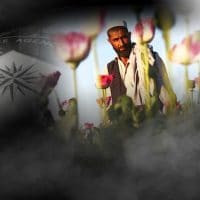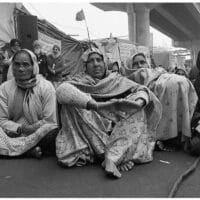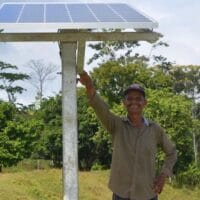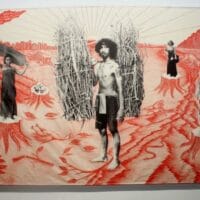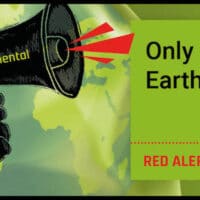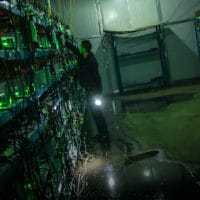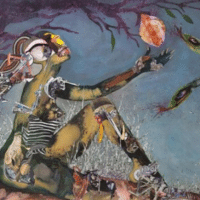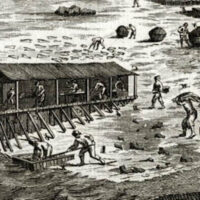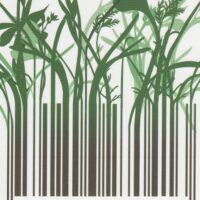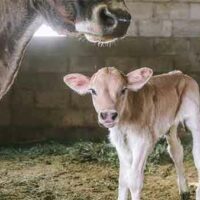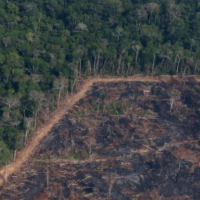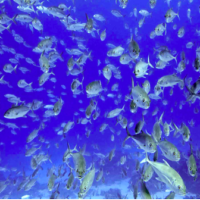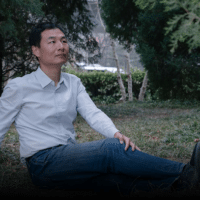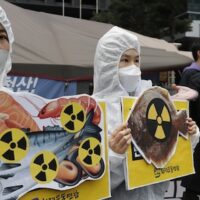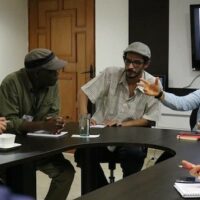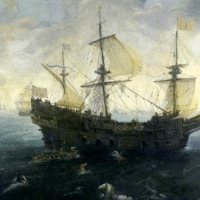-
North America’s heatwave hell
As temperature records were smashed all up and down the Pacific coast in the last week of June, reports emerged of rolling blackouts, buckling roads, damaged wires and newly sparked wildfires.
-
The Political Economy of Hybrid Corn
In bourgeois society a violation of property rights is the supreme injustice. Hybrids provided a solution in agriculture. Commercial hybrids decrease the yield of the following generation. This means that farmers have to renew their seed every year. Hence, hybrids create a perpetual market for seed.
-
Geopolitics, profit, and poppies: how the CIA turned Afghanistan into a failed narco-state
The war in Afghanistan has looked a lot like the war on drugs in Latin America and previous colonial campaigns in Asia, with a rapid militarization of the area and the empowerment of pliant local elites.
-
Rob Wallace on the political economy of pandemics
Jair Bolsonaro, Donald Trump, Boris Johnson and such leaders across the world are malicious miscreants, convening necropolitical death cults. But the alternatives, also tied to capitalist sociopathy, are only a little bit better. Our “progressives” worship at the altar of the circuits of capital.
-
The Kisan [Farmers’] Commune in India
On 26 June 2021, tens of thousands of Indian farmers will gather in front of the government offices in India’s twenty-eight states.
-
Sustainable Consumption: A view from the Global South
The global discourse on sustainability has revolved around the need to transition towards “Sustainable Consumption” ever since it was introduced during the 1992 Earth Summit chaired by Maurice Strong, a Canadian businessman who made his wealth from the oil and gas industry.
-
Nicaragua’s green revolution
While large polluting countries have refused to take necessary measures to slow the climate crisis, Nicaragua, one of the most vulnerable countries to climate change, has taken impressive steps to shift to more sustainable energy.
-
We hug the trees because the trees have no voice
In 1974, the UN urged the world to celebrate that day on 5 June with the slogan ‘Only One Earth’; this year, the theme is ‘Ecosystem Restoration’, emphasising how the capitalist system has eroded the earth’s capacity to sustain life.
-
Red Alert: Only one Earth
A new report from the United Nations Environment Programme (UNEP), Making Peace with Nature (2021), highlights the ‘gravity of the Earth’s triple environmental emergencies: climate, biodiversity loss, and pollution’.
-
As China pursues a green future, Bitcoin miners feel the squeeze
Chinese cryptocurrency businesses mine two-thirds of all Bitcoin. But for how long will they remain welcome in the country?
-
BAR Book Forum: Stefanie K. Dunning’s “Black to Nature”
The author explores various social, political, and cultural sites that explore and highlight the Black pastoral experience.
-
The fishing revolution
Centuries before the industrial revolution, the first factories transformed seafood production.
-
On Paul Kingsnorth and Unruly Nature
Myth, an early and enduring human technology, will always be with us, in both unconscious and conscious forms. As we now face the slow-motion collapse of the biosphere, the call for new myths is not so much an escapist alternative to concrete analysis and action as a starting point.
-
Sexed semen—Why the technology of producing only female calves should be opposed firmly
There is a fast increasing trend in cattle breeding towards sex semen technology which will result in birth of only female calves. 90 per cent success in ensuring success (in terms of having only female calves) is claimed by promoters of this technology.
-
Whose agriculture drives disease?
We concur that linking land-use change science, ecology, and epidemiology is a critical step towards developing a more robust understanding of zoonotic diseases. Yet we are wary of the way the authors omit the historical specificities, political economy, and agroecological dynamics of land-use change, and their implications for disease ecologies.
-
Should marine species own the high seas?
To save the ocean, give property rights to the creatures living there.
-
Battles lost, wars won: An environmentalist’s story
After Friends of Nature director-general Zhang Boju saw his activism fail, he went another route.
-
Grave concerns raised as Japan announces release of radioactive water into the sea
JAPAN has come under fire after its government announced today that it would release more than a million metric tonnes of radioactive water from the destroyed Fukushima nuclear plant into the ocean.
-
Zambia is the tip of the tail of the Global dog
On 12 August 2021, the people of Zambia will vote to elect a new president, who will be the seventh person elected to the office since Zambia won its independence from the United Kingdom in 1964 if the incumbent loses.
-
The first cod war
How England’s government-licensed pirates stole the Newfoundland fishery from Europe’s largest feudal empire.



